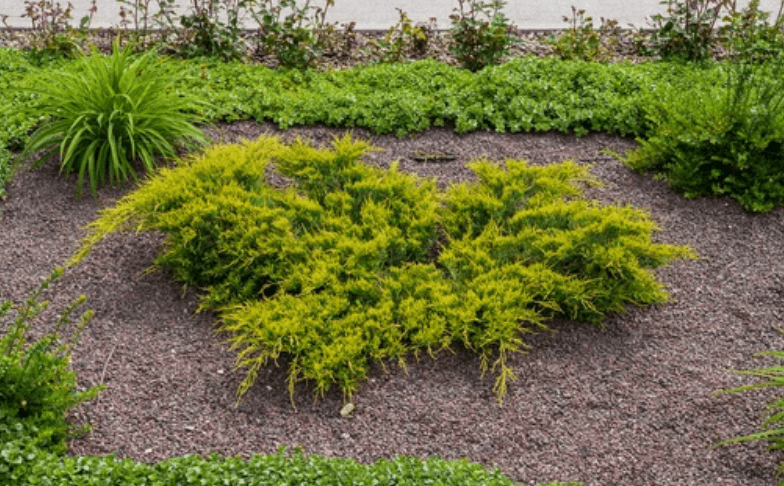
Have you ever wondered what cypress mulch is and whether it is good for your garden? Cypress mulch is a type of organic mulch made from shredded cypress trees. Gardeners widely use it for its low cost, nutrient content, weed suppression, and aesthetic appeal. However, using cypress mulch in gardens also has some serious drawbacks that you should be aware of before you buy it.
Benefits of Cypress Mulch
Low cost
Cypress mulch is generally cheaper than other organic mulches, such as pine bark, cedar, or hardwood. You can buy it in bulk or in bags from garden centers, nurseries, or online retailers. Cypress mulch can help you save money on your gardening expenses.
Nutrient content
Cypress mulch contains organic matter that can improve the quality of your soil as it decomposes. It can add nitrogen, phosphorus, potassium, and other micronutrients to your soil, benefiting your plants’ growth and health.
Weed suppression
Cypress mulch can help you control weeds in your garden by blocking the sunlight and preventing the germination of weed seeds. It can also smother existing weeds and reduce the need for herbicides.
Risks of Cypress Mulch
Environmental impact
Cypress forests are critical to the ecosystems of southern states such as Florida and Louisiana. They are key elements in wetlands and protect them from storms. Unfortunately, logging has taken its toll on the cypress population. Virtually all old-growth cypress groves have been clear-cut, and what is left is under attack by the cypress mulch industry.
The wetlands in Florida and Louisiana are being cleared of cypress trees much faster than the rate cypress can naturally regrow. The use of this product could decrease the country’s cypress forests.
Sustainability issues
The cypress mulch industry has been criticized for its unsustainable practices that harm the environment and wildlife. Many environmental groups have called for a boycott of cypress mulch products to protect wetlands and endangered species.
False claims
The cypress mulch industry has made many false claims about the benefits of using cypress mulch in gardens. For example, they claim it repels insects, resists decay, or lasts longer than other organic mulches. However, these claims have been debunked by scientific studies that show no significant differences between cypress mulch and other wood chips.
Alternatives to Cypress Mulch
Pine chips
Pine chips are a good alternative to cypress mulch because they are also low-cost, nutrient-rich, and effective at weed control. They are made from pine trees that are grown sustainably in many parts of the country.
Leaves
Leaves are a free source of organic matter that you can collect from your yard or neighborhood. They are rich in minerals and trace elements that can benefit your soil and plants.
Straw
Straw is another organic material that you can use as a mulch in your garden. It is cheap, lightweight, and easy to apply. It can also protect your plants from frost damage in winter.
Compost
Compost is a natural fertilizer that you can make from kitchen scraps, yard waste, or animal manure. It is rich in nutrients that can improve your soil structure and fertility.
Conclusion
In conclusion, while cypress mulch may offer certain benefits, weighing these against the potential risks and considering more sustainable alternatives is essential. By opting for eco-friendly mulches, we can contribute to a healthier planet while still enjoying the rewards of a thriving garden.
Let’s work together to create a greener, more sustainable future for our gardens and our planet.
Frequently Asked Questions
Q: What are the benefits of using cypress mulch in gardens?
A: Cypress mulch is known for its low cost, nutrient content, weed suppression abilities, and aesthetic appeal.
Q: What are the risks associated with cypress mulch?
A: The main risks include its environmental impact, sustainability issues, and false claims about its insect resistance and durability.
Q: What are some alternatives to cypress mulch?
A: Eco-friendly alternatives include pine chips, leaves, straw, and compost.




























